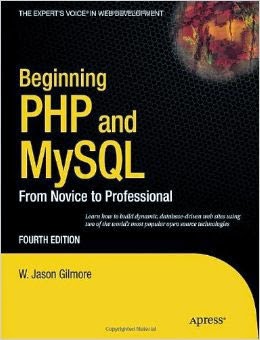Why did I pick up Ruby?
You know what, that's an excellent question. I don't know exactly. I was jobless, low on confidence, and needed to distract myself by learning something. Something or other brought me to this site, Try Ruby. I went through their online tutorial and the Ruby syntax was pretty straightforward. It just kind of flowed. It was only a while later that I read a description of Ruby as a programmer's best friend, and by that time I thoroughly agreed.What the hell, right? It wasn't like I had anything else to do between attending interviews and waiting for replies to my job applications. So I rolled up my metaphorical sleeves and got cracking.
The process
First was the installation of the Ruby server on my aging laptop. It turned out to be a breeze, especially when you consider all the pain I experienced while setting up the WAMP stack for PHP back then. And then in the Command Line Interface, I learned a bit by typing a few commands here and there.Then I started typing in entire block codes into text files and running them on the CLI. Now, this was something I could get into. After all, I'm doing pretty much the same thing whenever I use QBasic.
That was when I started doing katas. It was easy stuff like the FizzBuzz algorithm, simple calculators, and so on. Stuff that used basic code blocks like inputs, outputs, If-Else, For... you know, the usual suspects. I even picked up this book, Exercises for programmers: 57 challenges to develop your coding skills by Brian P. Hogan, and did quite a few exercises in them using Ruby. One of them resulted in the Ruby Website Template Generator.
And speaking of books, I did eventually get around to reading them, just to see if it could help reinforce everything I thought I'd learned so far. Ruby recipes: a problem-solution approach by Malay Mandal was one of them.
What I did learn was that there was a lot more detail to the Ruby commands and functions that I had been using - stuff I never knew about simply because my use cases never touched them. Interesting. Perhaps not absolutely necessary, but good to know.
I was starting to write Ruby programs that were still rudimentary, but had more moving parts. By this time, I had landed a job at a major tech company that used a lot of C#. Ruby was a non-essential part of my career at this point, but I kept using it now and then in my off-time because it was just such a joy to code in.
Ruby on Rails
But learning Ruby on its own just doesn't cut it these days. If I wanted to get some real value out of that experience, I was going to have to graduate to using its most famous framework - Ruby On Rails. This was done by exploration of the Rails for Zombies portal, which gave me a fun little kick start. I love programming, and I love zombies.Turns out Ruby On Rails wasn't such a big revelation as I thought it would be. I picked up some more reading from the local library. All things considered, it was pretty dry.
The Rails view: creating a beautiful and maintainable user experience by John Athayde and Bruce Williams
Rails crash course: a no-nonsense guide to Rails development by Anthony Lewis
Editor's Note: I am neither recommending nor not recommending these books. They were well-edited; I just didn't get a whole lot of value out of them and would have been fine not having read them. But that doesn't mean you're going to have the same experience.
After starting up a Rails server and going through all that stuff about Models, Controllers, Views and Helpers, I quickly realized that this was pretty much the same shit I'd gone through with ASP.NET 4.x or even CodeIgniter. I mean, there just doesn't seem to be that many ways to implement MVC, does it?
To test out this theory, I had to build a website. There was this thing my ex-boss implemented - a multi-lingual site that allowed the user to switch languages at will. I had an itch to try it for myself. To make the exercise even more interesting, I implemented the idea in Ruby On Rails.
And it really wasn't that hard. Personally, I feel that if you're having a problem with Ruby On Rails, your problem might be Ruby itself, or the fact that you need to understand MVC. If you've done both, this is a piece of cake.
Epilogue
Years after the fact, I'm still using Ruby. It's great for recreational programming and I'm getting as much use out of it as QBasic, which is a pity because it can be used for so much more. I got into it because I was idle at the time and needed to engage in a nominally productive pursuit. Perhaps that's why I never delved into it the same way I did for PHP - because my professional survival wasn't on the line.Also, I discovered something strange. While the Ruby syntax was really a delight to use - terse, uncomplicated and smooth as silk - I had trouble memorizing it the way I did for JavaScript and QBasic back then. Maybe my memory's just not what it used to be, or maybe I've just evolved as a programmer. I'm no longer interested in memorizing commands - I want to get stuff done, and I have no compunction against copying and pasting from the internet, and modifying stuff to make it work. And perhaps, psychologically, since there's no longer any real motivation to memorize anything, I simply don't.
But really, if you're looking to pick up an extra language, I couldn't recommend Ruby enough.
Try it. It's a real gem!
T___T
T___T













